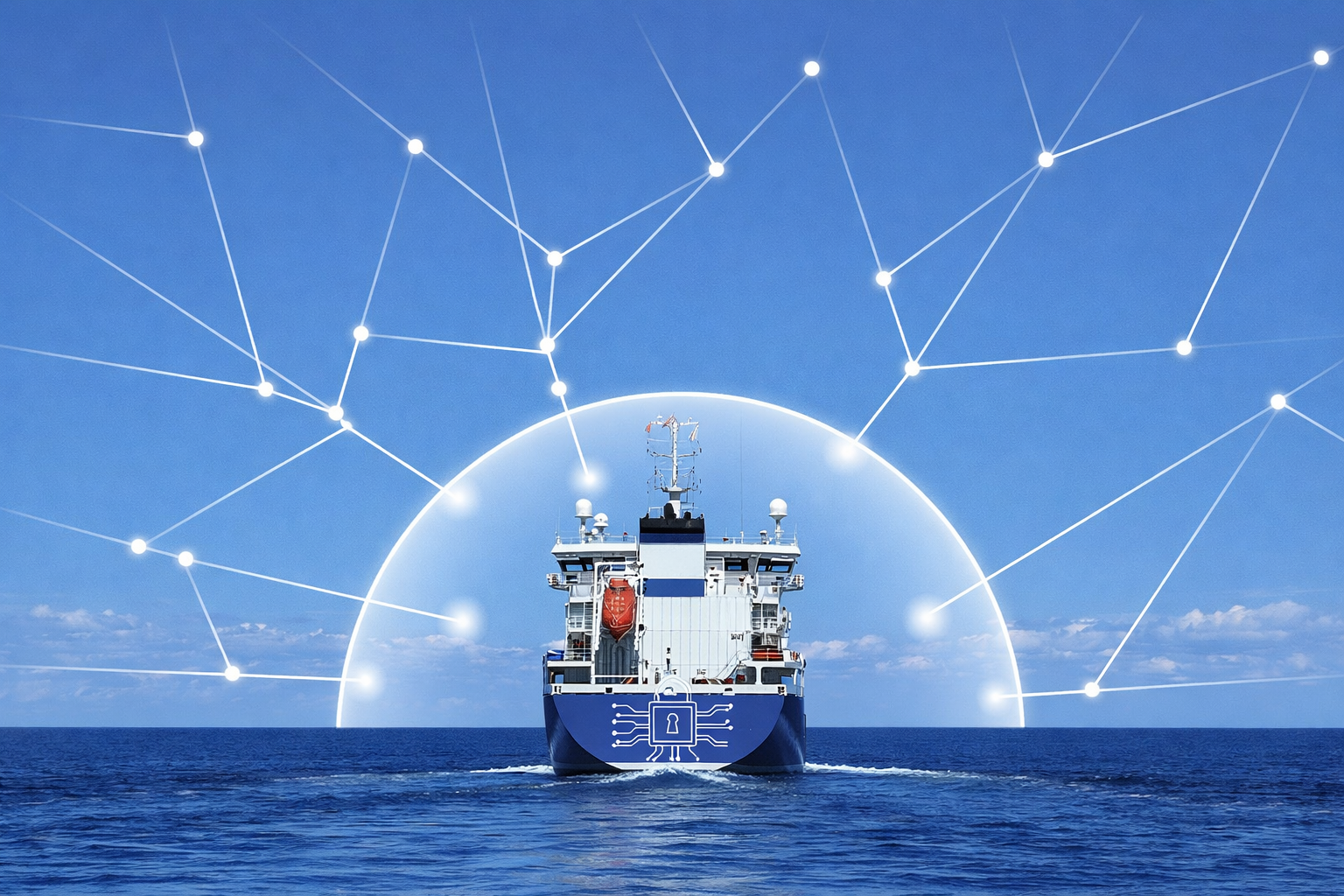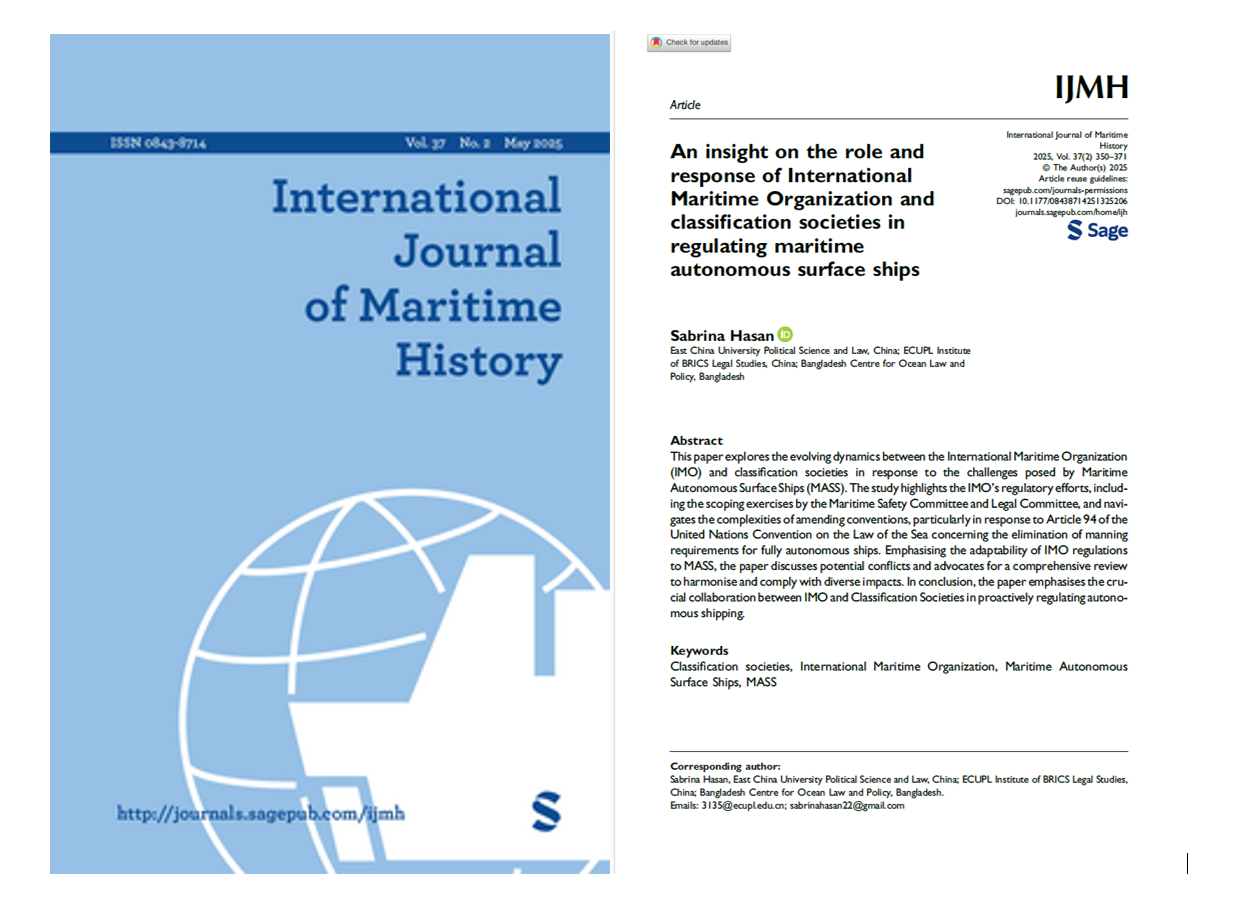Md. Mostafijur Rahman
The ocean is a singular repository of resources and different elements with almost endless possibilities. More than ever, nations rely on these energy resources due to the current rapid industrialization, economic expansion, and widespread use of technology. The ocean plays a vital role in regulating global temperatures, absorbing CO2, supplying oxygen, and serving as a major source of renewable energy (1) and natural resources. For these reasons, there is an obvious connection between climate change and the ocean. In order to effectively control climate change, we thus also need ocean governance. Fortunately, the Sustainable Development Goal (SDG) 14—”Conserve and sustainably use the oceans, seas, and marine resources for sustainable development”—makes specific mention of oceans.
The Bay of Bengal, spanning 2.17 million square kilometres, (2) is now at the center of the region’s attention when considering climate change. Given that Bangladesh is located at the center of the Bay of Bengal, several concerns make it crucial to be at the center of the country’s efforts to tackle environmental issues. The victory over the Bay of Bengal’s maritime region created the hitherto unheard-of potential for Bangladesh’s blue economy. 111000 sq km in dispute with Myanmar and 19,467 sq km in dispute with India were given to Bangladesh. Bangladesh’s biosphere, social progress, and human welfare depend on the Bay of Bengal, which is a vital component of the nation’s life support system. In light of the potential for rich resources to be hidden just beneath the established vicinity, the Bay of Bengal has, therefore, opened up new opportunities for Bangladesh.
Bangladesh’s ability to sustainably manage the ocean is essential for addressing climate change, preserving biodiversity, ensuring food security, building coastal resilience, providing access to renewable energy sources, managing natural resources, and maintaining human health. Indeed, the Summit UAE of 2023 was a crucial forum for promoting ideas and carrying out policy assessments for achieving a sustainable climate future. COP 28 was especially significant since it concluded the first “global stocktake” of the global climate change response under the Paris Agreement. Bangladesh has high expectations from COP-28 as it needs to address the effects of climate change immediately and ensure a sustainable future.
As a result, by pressing developed nations to contribute more money to the fund, operationalizing the Loss and Damage mechanism, supporting evidence-based treatments, sustainable farming methods, and an international climate insurance program, and pushing for increased climate finance delivery and stronger NDCs or contributions to the Paris Agreement, Bangladesh is proactively addressing these issues. As per the decisions made at COP28, Bangladesh is anticipated to keep working toward stronger climate fund delivery, stricter emission reduction targets, a stronger emphasis on the development of climate-resilient infrastructure, and more regional collaboration on climate-related issues. (3)
On the strategic front, Bangladesh is a natural link between South and Southeast Asia because of its geographic location. Given its ability to promote further integration between Northeast and Central India, Bangladesh is also an essential geopolitical ally of India. At the same time, China considers Bangladesh a potential strategic partner to collaborate on its “Maritime Silk Road” project and the “String of Pearls” strategy due to its distinct topography. (4a, 4b) The likelihood of deeper connections with Bangladesh is something that China’s Western adversaries, including India, are well aware of. This potential has also transformed Bangladesh’s standing from decades of geopolitical insignificance to a major factor in determining the course of Asia. In order to preserve its geopolitical significance, Bangladesh must perform a delicate diplomatic balancing act. Two important parties, China and the Quad nations (Australia, Japan, the US, India, and Australia), must maintain positive and balanced bilateral relations. (5) Further, the ongoing fighting between the Myanmar Army and rebel groups in Rakhine state and other areas will have an impact on the security of Bangladeshi territory and the Bay of Bengal, according to a seminar titled “Existing crisis in Myanmar and its impact in the neighbouring regions” that was organized by the Center for Peace Studies (CPS) of North South University’s South Asian Institute of Policy and Governance (SIPG). (6)
Despite all of the Bay of Bengal’s advantages, it is endangered. The concept of climate security holds significance for policy planners in the Bay of Bengal region for multiple reasons. It is, first and foremost, extremely climate-vulnerable. Secondly, a fourth of the world’s population lives along the shoreline, making it a densely populated zone. Thirdly, the region’s share of the world economy is close to 4.7%. Fourthly, the Malacca Strait is a vital marine chokepoint. The world’s busiest commercial passage, the Strait of Malacca, links the South China Sea with the Burma Sea en route to the Bay of Bengal, making it a strategically important location. (7) Cross-border militancy in the triangle formed by Bangladesh, India, and Myanmar is the most significant non-traditional security threat. Migration is the subject of another significant security concern; for example, almost one million Rohingyas escaped to Bangladesh in 2017. (8) Fifthly, there are several security risks associated with the Bay of Bengal, (9) including illegal, unreported, and unregulated (IUU) fishing, (10) human, weapon, and drug trafficking. Many non-state actors have the potential to launch a terrorist attack against the Bay of Bengal region. (11) Finally, the populace living along the coast is being impacted by the already-occurring rise in sea levels and temperatures.
To combat both conventional and non-traditional threats, all the states in the Bay of Bengal have also realized how important it is to maintain maritime security. It is not just about preserving the Bay of Bengal when it comes to combating climate change. It is also about protecting the environment and the nation from issues like unemployment, poverty, and health risks; it is about preventing essential infrastructure from being negatively impacted by climate change; it is about preventing problems with people’s safety, security, and means of subsistence; and it’s about keeping the country green.
This is due to the fact that climate change has a wide range of repercussions, such as floods and wildfires, new diseases, draughts, and food shortages, as well as animal extinction and entire people leaving their homes in pursuit of more hospitable environments. Moreover, over 33% of world trade passes through this region. The Bay of Bengal is one of the 64 major maritime ecosystems because of its enormous forests, rivers, coral reefs, estuaries, deltas, and a variety of fish and animal species. If the Bay of Bengal is under stress, particularly due to climate change, the future of coastal people will be jeopardized, and the foundation of a sustainable blue economy will be at risk.
In order to maintain a 1.5-degree trajectory and to strengthen food security, energy capacity, and local livelihoods through enhanced climate action, COP-28 recently offered to implement solutions for stakeholders identified under the ocean breakthroughs. These solutions can contribute up to 18% of the emission reductions needed in 2030 and up to 35% in 2050. (12) When prepared, this chance will help the Bay of Bengal’s ocean governance.
Why is ocean governance critical to addressing climate change? Is it truly our knowledge of what occurs in the world? These questions must be addressed before there is a rush to use marine resources. The blue economy requires these answers to have legal clarity prior to making fresh investments in the Bay of Bengal. As a result, an assessment of Bangladesh’s current ocean governance framework is essential.
Ocean governance refers to the management of ocean affairs by local communities, businesses, and other stakeholders in addition to governments. It encompasses public and private law, international and national law, custom, tradition, and culture, as well as the organizations and procedures that result from them. (13) Policymakers and scholars need to create a new section on this for the national policy of the respective countries in the Bay of Bengal to reach the global achievement of both the SDG and climate change targets by 2030. It is evident how climate change affects the Bay of Bengal. The common goal of the region is to determine the optimal Ocean Governance regulations that support the Bay’s preservation and protection.
Md. Mostafijur Rahman is a law graduate of the University of Rajshahi, Bangladesh. He is currently a PhD Researcher at the Bangladesh University of Professionals (BUP). He may be reached at mrlawru2001@gmail.com.
Notes:
(1) Vella, K. (2015, November 30). Blog: Climate Change and Ocean Governance. EU Monitor. https://www.eumonitor.nl/9353000/1/j9tvgajcovz8izf_j9vvik7m1c3gyxp/vjzhnmtl1bz1?ctx=vjn4dhshj9zp&start_tab0=130
(2) Karim, T. (2023, May 11). The Bay of Bengal and Bangladesh in the Indo-Pacific region, The Daily Star, https://www.thedailystar.net/opinion/news/the-bay-bengal-and-bangladesh-the-indo-pacific-region-3316926
(3) What Has Bangladesh Gained from COP 28? – The Confluence, https://theconfluence.blog/what-has-bangladesh-gained-from-cop-28
(4a) Rahman, Z. (2021). Bangladesh’s geopolitical position provides for unique opportunities, the Daily Star, https://www.thedailystar.net/views/opinion/news/bangladeshs-geopolitical-position-provides-unique-opportunities-2221461
(4b) Islam, M. Bangladesh, Bay of Bengal, And China’s Belt and Road Initiative, China and the Ports of the Indian Ocean, edited by Richard T. Griffiths, International Institute for Asian Studies, 2022, p. 221
(5) Belt and Road Initiative: Perspective from Bangladesh, Aug 7, 2019, The Daily Star, https://www.thedailystar.net/round-tables/news/belt-and-road-initiative-perspective-bangladesh-1782928
(6) NSU holds a colloquium titled ‘The Current Crisis of Myanmar and Its Impact on Neighboring Region’ retrieved from https://www.tbsnews.net/economy/corporates/nsu-holds-colloquium-titled-current-crisis-myanmar-and-its-impact-neighbouring
(7) Puigrefagut, A. (n.d.) China and India fight for the gates of the Strait of Malacca, GLOBAL AFFAIRS, https://www.unav.edu/web/global-affairs/detalle/-/blogs/china-and-india-fight-for-the-gates-of-the-strait-of-malacca
(8) International Crisis Group. (2022, January 12). Myanmar’s Coup Shakes up Its Ethnic Conflicts. Asia Report N°319. https://progressivevoicemyanmar.org/wp-content/uploads/2022/01/2022-01-12-ICG-319-myanmar-coup-ethnic-conflicts-en-red.pdf
(9) Singh, A. J. (2022, May 02). Building a Resilient Maritime Security Architecture in BIMSTEC. New Delhi: India Foundation. https://indiafoundation.in/articles-and-commentaries/building-a-resilient-maritime-security-architecture-in-bimstec
(10) Wagner, C. (2023). Searching common security in the Bay of Bengal. Australian Journal of Maritime & Ocean Affairs, DOI: 10.1080/18366503.2023.2270313
(11) World Oil Transit Chokepoints. (2017, July 25). US Energy Information Administration. https://www.eia.gov/beta/international/regions-topics.cfm?RegionTopicID=WOTC
(12) Rodriguez, K. (2023, December 9). A breakthrough for oceans: Scaling Nature-based solutions for ocean-based climate policy at COP28 https://climatechampions.unfccc.int/a-breakthrough-for-oceans-scaling-nature-based-solutions-for-ocean-based-climate-policy-at-cop28
(13) Borgese, E.M., (2001). Ocean governance. Halifax: International Ocean Institute. p. 10








